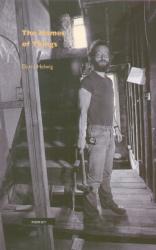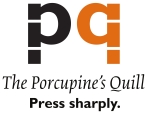
The Names of Things is a book about a man and a generation. Born to a working-class family in Toronto, David Helwig grew up in the haunted town of Niagara-on-the-Lake long before it became a fashionable summer destination for charter coaches of American tourists. David won a scholarship from General Motors to attend the University of Toronto and launched himself into theatrical productions at Hart House and mingled with such writers as John Robert Colombo, Henry Beissel, Edward Lacey, David Lewis Stein and Edna Paris.
After working in summer stock with young actors including Timothy Findley, Gordon Pinsent and Jackie Burroughs, he spent a couple of years in the suburbs of Birkenhead, then moved to Kingston where, in the 1960s he shared the world of little magazines with Tom Marshall and Michael Ondaatje and the world of prisons with the inmates he taught. In the 1970s he worked under John Hirsch at the CBC. He edited books for Oberon Press. He was part of the generation of young Canadian writers who believed they could achieve anything. He also shares a touching account of family life, of learning to be a father. Poetry, some of it never before published, catches the echoes of the life he lived. From childhood during the Second World War to becoming a grandfather at the millennium, this is the story of one man and his connections with the history of Canada in the latter part of the twentieth century.
Praise for The Names of Things
‘The time is coming when the generation of Canadian writers that began publishing in the 1960s and flourished in the 1970s will start to pour the coffee on the campfire. Already their numbers have thinned a bit. Those still active are fading into respectability: the land of Festschrifts and honorary degrees, of diminishing pensions and persistent disease. In the future story of this drift towards infinity, David Helwig’s memoir The Names of Things could well become a significant primary document.’
—George Fetherling, New Brunswick Reader
‘This is a highly compelling and highly satisfying memoir that gives as much information about Helwig as there probably is, much of it in the way of him deflecting the focus off himself and onto others. If I were to list the books that David Helwig has published, there would be little space for anything else; there is much for Helwig to be immodest about. Still, the strength of this three hundred page document comes from the fact that this is a memoir by a quiet, modest and engaged writer, with some sixty-odd years of experience behind him. Whether you care for his writing or not, I would almost call this essential reading; a ‘‘writing life’’ that focuses on the life.’
—Rob McLennan, robmclennan.blogspot.com
‘The remarkable part of Helwig’s story is that he has made a living all these years in the service of words and images. A writer can write in any number of media, and Helwig has done it all: novels, stories, poems, reviews, journalism, radio, television, generally managing to get paid for it all. It was easier at one point. For some years he was published by big commercial publishers, but in the early 1990s he was dropped by Penguin and became once again a small press author. Like the guy who does your drywalling (if you’re lucky), Davis Helwig is a working stiff who does a job you’ll be happy with.’
—Nicholas Pashley, UofT Bookstore Review
‘In short, a fine memoir, both as a record of a long and dedicated career and as a document in the history of the generation of writers stirred into activity by Expo and the other events of forty years ago.’
—George Fetherling, Books in Canada
‘It’s hard to give an accurate description of a book that still haunts you weeks after you’ve finished the last page. The Names of Things leaves readers with the sense that they have received a deeper, subtler message than could be expected from a standard autobiography. Although the label ‘‘memoir’’ is firmed stamped on both the cover and title page, I would sum up this book with the author’s own words: ‘‘a rich brew of daily experience’’.’
—Agnes Ecsedy, echolocation
Read an Excerpt
From Chapter 1
The middle of the night, and I am lying in the emergency ward of the Ottawa Civic Hospital, a video monitor indicating my blood pressure and the speed and regularity of my heartbeat -- irregularity in this case. What I am experiencing has been quickly recognized as atrial fibrillation, an uncoordinated twitching in the upper chambers that causes the heart to move in a fast and uneven rhythm. Not life-threatening, I’m told, though if allowed to continue, it can lead to the formation of blood clots and the threat of a stroke, and as I lie here the medical staff administer various intravenous drugs in an attempt to stabilize the heart’s action.
I am sixty-five years old, mortal. My daughter Maggie, who sits in a chair at the foot of the bed, keeps me company. In the morning, the cardiac rhythm having been converted to what’s normal by electroshock, I will leave the hospital and pick up two companions for the drive back to Prince Edward Island.
At home in the big frame house in an Island village, Judy is asleep in our bed, knowing nothing of this. I have been in Ontario and Quebec for over a week, a meeting in Ottawa providing an excuse to visit family and old friends. Two days ago, I had lunch with John Metcalf in his wife Myrna’s lively restaurant, the Elgin Street Diner, and one of the things we talked about was John’s suggestion, made by letter a few months before, that I should write a memoir. His argument is that we have lived through a significant period in the story of Canadian writing, and that if we don’t put it down while we’re still here, it will all be lost.
The video monitor continues to inscribe jagged white lines, faster, slower, instead of the second-by-second ticking away of a normal heartbeat; the blood pressure cuff on my arm inflates and deflates and new values are recorded on the screen. Doctors have asked me questions, searching for a possible cause for this sudden agitation in the heart muscle. The only ones that sound likely are coffee and stress. For a week I’ve been moving from city to city, meeting with men and women I love, making connections to earlier lives, examining the chain of circumstance that is my life, and that has its own kind of urgency. Accosted by the past, face to face, perhaps I grow over-excited.
At the beginning of the trip, in Montreal, I had lunch with an old pal from university days, Bill Davis, who is now famous as the Cigarette Smoking Man from X-Files, and I watched him, tall and intense, but with that familiar wide smile, give a fine performance as Niels Bohr in Michael Frayn’s playCopenhagen. He told me, with some annoyance, about a book on Canadian theatre which insisted there had been no summer theatre in Peterborough, Ontario, during the very years when he and I and Jackie Burroughs and Gordon Pinsent and Tiff Findley and many others were there doing it. History is whatever gets written down; John Metcalf’s point, I suppose.
About the Author

Born in Toronto in 1938, David Helwig attended the University of Toronto and the University of Liverpool. His first stories were published inCanadian Forum and The Montrealer while he was still an undergraduate. He then went on to teach at Queen’s University. He worked in summer stock with the Straw Hat Players, mostly as a business manager and technician, rubbing elbows with such actors as Gordon Pinsent, Jackie Burroughs and Timothy Findley.
While at Queen’s University, Helwig did some informal teaching in Collins Bay Penitentiary and subsequently wrote A Book About Billie with a former inmate.
Helwig has also served as literary manager of CBC Television Drama, working under John Hirsch, supervising the work of story editors and the department’s relations with writers.
In 1980, he gave up teaching and became a full-time freelance writer. He has done a wide range of writing -- fiction, poetry, essays -- authoring more than twenty books. Helwig is also the founder and long-time editor of the Best Canadian Stories annual. In 2009 he was named as a member of the Order of Canada.
David Helwig lives in the village of Eldon on Prince Edward Island, where he is the third Poet Laureate. He indulges his passion for vocal music by singing with choirs in Montreal, Kingston, and Charlottetown. He has appeared as bass soloist in Handel’s Messiah, Bach’s St Matthew Passion and Mozart’s Requiem.
For more information please visit the Author’s website »
You Might Also Like
Buy in Print
To get this book in print, order from your favourite indie bookseller, or
buy online from our distributor, UTP »
